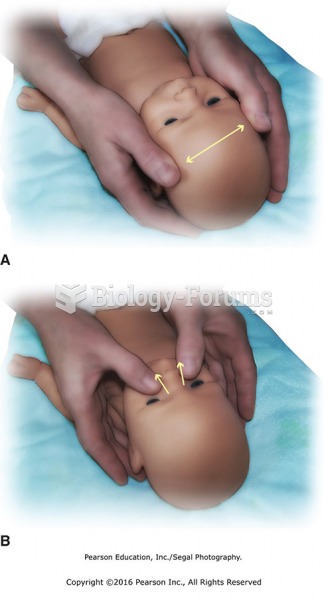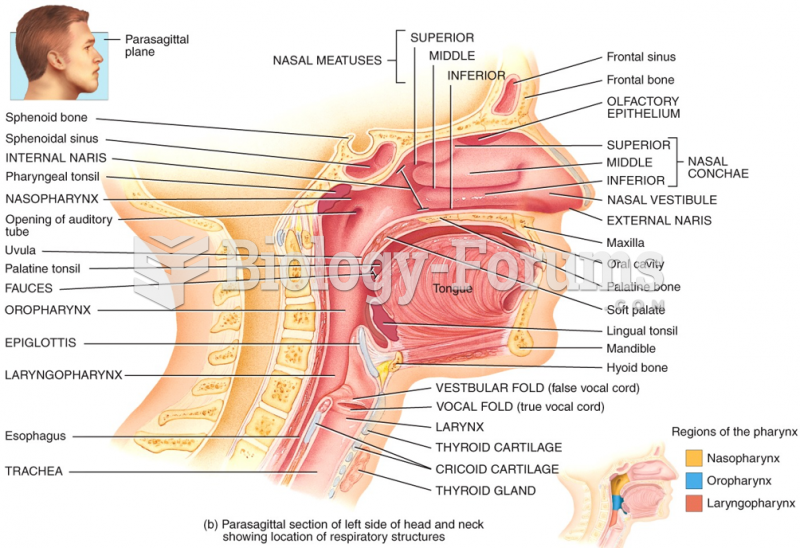|
|
|
Many supplement containers do not even contain what their labels say. There are many documented reports of products containing much less, or more, that what is listed on their labels. They may also contain undisclosed prescription drugs and even contaminants.
More than 150,000 Americans killed by cardiovascular disease are younger than the age of 65 years.
Most childhood vaccines are 90–99% effective in preventing disease. Side effects are rarely serious.
The most destructive flu epidemic of all times in recorded history occurred in 1918, with approximately 20 million deaths worldwide.
The cure for trichomoniasis is easy as long as the patient does not drink alcoholic beverages for 24 hours. Just a single dose of medication is needed to rid the body of the disease. However, without proper precautions, an individual may contract the disease repeatedly. In fact, most people develop trichomoniasis again within three months of their last treatment.
 Squeeze the foot lightly from heel to toes. Fingers of hands on top with thumbs around the sides and ...
Squeeze the foot lightly from heel to toes. Fingers of hands on top with thumbs around the sides and ...
 To broaden and lift the quadriceps muscles, place the heels of the hands together directly on top of ...
To broaden and lift the quadriceps muscles, place the heels of the hands together directly on top of ...





